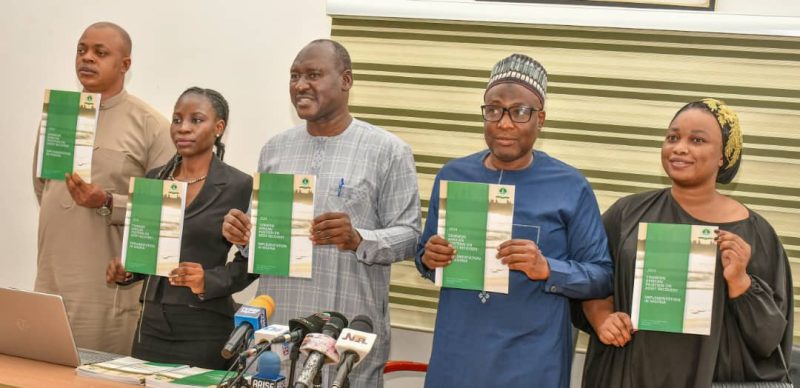Nigeria reclaims over $5 billion in looted assets over 25 years

Over the past 25 years, Nigeria has successfully recovered more than $5 billion in assets that were hidden or illicitly transferred abroad, according to Auwal Musa Rafsanjani, director of Nigeria’s Civil Society Legislative Advocacy Centre (CISLAC).
Speaking at a press conference on Wednesday, Rafsanjani revealed that the reclaimed assets include cash, valuable property, and jewelry that had been illegally moved beyond Nigeria’s borders.
The asset recovery was facilitated through the “Common African Position on Asset Recovery,” a collaborative effort involving CISLAC, Nigerian authorities, and international partners.
This initiative aims to bolster efforts to repatriate funds and assets embezzled by powerful figures and former leaders of Nigeria.
Nigeria’s efforts to recover these assets have relied heavily on partnerships with countries such as Switzerland and the United States.
Rafsanjani highlighted that the process often demanded years of negotiations, extensive investigations, and the collaboration of multiple international agencies.
A significant portion of the reclaimed funds stems from assets looted by former head of state General Sani Abacha, who ruled Nigeria from 1993 to 1998.
Since the end of Abacha’s regime, Nigeria has managed to repatriate more than $3.6 billion in stolen assets, including substantial amounts returned by European and North American countries where the funds were hidden.
The intricate process of recovering these assets often involved navigating complex international laws and tracking funds that were stashed in secret accounts or converted into high-value assets, such as precious jewelry.
Despite these challenges, Nigerian authorities have persisted in their efforts, with CISLAC continuing to probe the whereabouts of additional assets that remain hidden overseas.
Rafsanjani noted that “there are still many assets to be recovered.”
Beyond the Abacha-related funds, Nigeria’s asset recovery efforts target embezzled funds by other political figures and influential individuals.
The drive to reclaim stolen assets is a key component of the country’s anti-corruption campaign and is intended to redirect these resources into critical sectors such as education, healthcare, and infrastructure development.
The Nigerian government is also taking steps to prevent future theft of public funds.
By prioritizing transparency and accountability, stricter anti-corruption laws have been enacted to enhance the oversight of public finances, ensuring that looted assets remain a thing of the past.
About The Author
dailymailafric
I am an avid African news observer, and an active member of Daily Mail Africa.
I’m Passionate about staying informed on diverse topics across the continent,
I actively contribute to publishing on political, economic and cultural developments in Africa.



